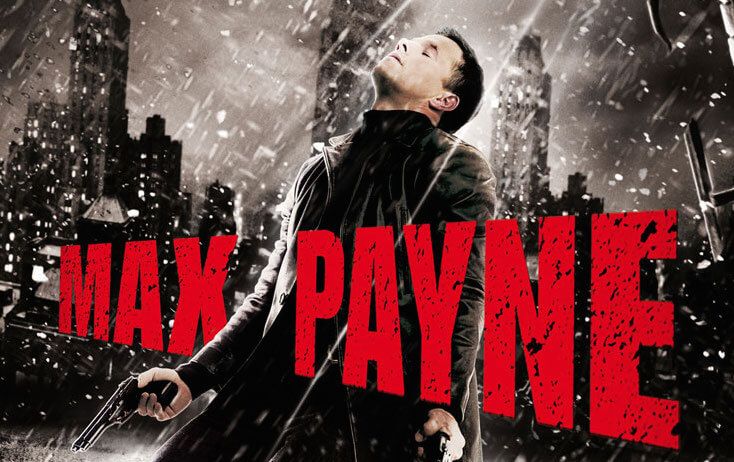Movie adaptations are a bit of a mixed bag. For every Fight Club, you have The Golden Compass, and for every Avengers, you have a League of Extraordinary Gentlemen. But when it comes to video game movies, it feels like the best you can hope for is Final Fantasy: The Spirits Within. It received a measly 44% positive rating on Rotten Tomatoes, and had little to do with anything in the Final Fantasy games. There are also stinkers like Alone in the Dark, where one out of 117 critics reported having a marginally acceptable viewing experience.
Now when gamers hear their favorite video game is getting the movie treatment, they tend to grit their teeth because adapting video games feels like a minefield of potential failures. Here are a couple of the traps aspiring video game movie makers tend to fall into.
Uncharted Directors Don't Have a Clue
Uncharted is an incredibly cinematic series from start to finish, and Nathan Drake's roguish charm seems perfect for leading a movie franchise. Adapting it for the silver screen should be easy—the pieces are all there, with a great premise, solid following, and plenty of plot to work with. So why hasn't it happened yet?
Taking a look at some of the past buzz around the movie (which is still reported as being in development, despite setbacks), some problems become obvious pretty quickly. In fact, one might wonder if the creators have even played the game. David O. Russell was set to direct for some time, but his remarks about the movie left fans scratching their heads.
"I think if we take that family dynamic that we have in The Fighter, and put that in terms of a grander stage, with a crime family that metes out justice in the world of art and antiquities," Russell said in an interview. "If you’re the head of a museum, or head of state, you’ve got to deal with them, and they’re badass."
While that all sounds great, Uncharted isn't really about a crime family meting out justice in the world of art and antiquities. You could make a case for a found family dynamic, but let's be honest: Drake is a treasure hunter, not some kind of history vigilante.
So why exactly was Russell even attached to the project? He's a great director, with movies like Silver Linings Playbook and The Fighter under his belt, but not the first choice for an action adventure film. The easy, cynical answer is money. Uncharted has all the makings of a summer popcorn flick, and with the game's fanbase in addition to the normal moviegoing audience, Uncharted is expected to be a cash cow.
Details continue to roll out about the upcoming film, but gamers are still skeptical—a clueless director isn't the only trap a video game movie can fall into.
Style Over Substance
Video games look cool; it's part of the appeal. But when it comes to video game movies, "looking cool" tends to trump story, characters, or any other appealing aspect of games.
Look at Lara Croft: Tomb Raider, for example. It starred Angelina Jolie and Daniel Craig, both huge names in Hollywood (although it was before Craig achieved 007 fame), and, like Uncharted, was expected to set a new bar for high-quality video game movies. Instead, the movie was a total mess of decent action scenes strung together with a ho-hum plot, carried along by Angelina Jolie's star power and sex appeal.
Unfortunately, the plot of the game series got shafted in favor of appealing to mass audiences. And while action and gunplay are important parts of the game, watching Angelina Jolie flip and cartwheel away from enemies just isn't as entertaining as actually playing the game.
The issue here is that, when developing video game movies, many directors and writers try to appeal to the audience in whatever way they feel best suits them. In the case of something like Tomb Raider, that appeal came in Lara Croft's look and gymnastic abilities, rather than the globe-trotting, puzzle-solving, and blending of history with fantasy that made the game so appealing.
This is true of other video game movies as well—Max Payne suffered heavily from a similar weighing of game aesthetics over actual plot, and it's been a recurring problem in several of the Resident Evil films.
The Future of Video Game Movies
Though things might have been bleak in the past, there is some good news for fans of video game movies. Duncan Jones, director of Moon and Source Code is working on Warcraft, and has actually reached out to video game fans for advice on how to appeal to a wider audience, meaning he hopefully prioritized staying true to the game first. And Neil Druckermann, director and writer for The Last of Us and Uncharted 2: Among Thieves, is writing and directing the film adaptation of The Last of Us. This is very promising, because he knows the story, knows the audience, and knows how to make it work.
Overall, video game movies have had a dark, disappointing saga, with few bright spots to report. The original Resident Evil was pretty good, and the original Silent Hill captured the horror game pretty well. But if we're going to see video game movies getting the treatment they deserve, it seems imperative that devs and fans play a larger role in their making. Not just people looking to capitalize on gamers who want to see their favorite franchises in a new medium. Hopefully the new era of video game movies, led by people like Duncan Jones and Neil Druckermann, will be just the thing to usher in better adaptations.

